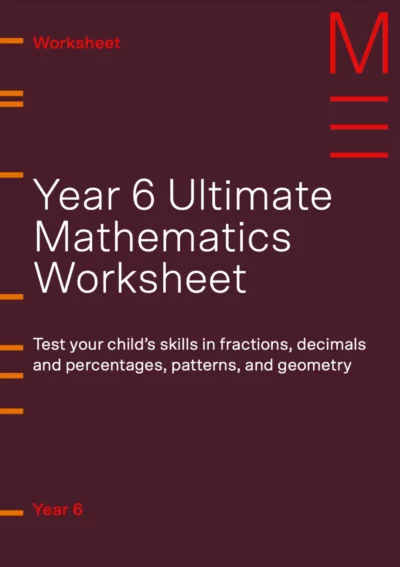Welcome to Matrix Education
To ensure we are showing you the most relevant content, please select your location below.
Select a year to see courses
Learn online or on-campus during the term or school holidays
Learn online or on-campus during the term or school holidays
Learn online or on-campus during the term or school holidays
Learn online or on-campus during the term or school holidays
Learn online or on-campus during the term or school holidays
Learn online or on-campus during the term or school holidays
Learn online or on-campus during the term or school holidays
Get HSC exam ready in just a week
Select a year to see available courses
Science guides to help you get ahead
Science guides to help you get ahead
Helping your child succeed in school starts with building the right habits at home. Study habits for primary students are crucial as they help them stay organised, motivated, and resilient in high school and beyond. Here are our top tips on how to help your child succeed in school.

Join 75,893 students who already have a head start.
"*" indicates required fields
You might also like
What do the top 1% of students have in common? Katrina Perrott, Matrix Education’s Head of Primary, says the answer is simple: they’ve mastered effective study habits for primary students. Building these habits early helps students succeed in school. It prepares them for tests and encourages them to be lifelong learners.
With over 20 years of classroom experience, Katrina shares ten expert tips. These tips will help your child reach their full academic potential. Here’s how to help your child succeed in school by building strong study habits for primary students.
One of the most effective ways to instil good study habits is to establish a consistent routine. A regular schedule helps children understand when it’s time to focus on learning and when it’s time to relax.
“It’s important to create a routine that allows for regular study sessions,” says Perrott. “But don’t forget to leave time for relaxation and fun!” This balance is important for preventing burnout while maintaining discipline.
Start by mapping out the week, accounting for school hours, extracurricular activities, and downtime. Then, fit in short, focused study periods where possible.
With this full-length OC test, help your child practise under exam conditions to improve their performance. Fill out your details below to get this resource emailed to you. "*" indicates required fields
Get your free full OC Mock Test!

Get your free full OC Mock Test!
Benefits of a structured routine:
Keep in mind, the key to an effective routine is flexibility. While having a structured schedule is essential, life can sometimes get in the way.
Teach your child that it is okay to change their routine when unexpected events happen. This can include family commitments or a last-minute project. This will teach them to be adaptable while still maintaining the discipline of regular study, an important life skill.
Long, drawn-out study sessions can be counterproductive, especially for young learners. Instead, help your child to break their study time into smaller, manageable blocks.
Study habits for primary students should focus on smaller, consistent efforts.
Children learn and retain more by focusing on specific subject matter over smaller periods.
This is why Matrix tutoring sessions are designed to be 1.5 hours long. This format is ideal for preventing cognitive fatigue while maximising learning. By studying in shorter bursts, students stay more engaged and are less likely to experience burnout.
Encourage your child to take regular breaks and return to their studies refreshed.
Knowing how to help your child succeed in school starts with understanding how they learn best. Every child learns differently, but there are generally three types of learning styles: visual, auditory, and kinaesthetic. Perrott recommends helping your child discover their learning style to improve their study efficiency.
“Are you a visual learner? Use charts, flashcards, or diagrams. Are you an audible learner? Record what you’re studying and listen to it whilst doing other tasks,” says Perrott.
For example, if your child is a visual learner, they might benefit from colour-coded notes or mind maps. If they are an auditory learner, they may enjoy studying by listening to recordings. They might also like discussing topics out loud.
Study habits for primary students should match each child’s learning style. This makes study sessions more effective and enjoyable.
This is also where tutoring services like Matrix Education stand out. With smaller class sizes, our tutors can personalise their approach to suit each student’s unique learning style. This individualised attention ensures that every student gets the support they need to thrive.
Children are more likely to stay motivated when they have clear goals to work towards.
Setting goals:
Perrott suggests that you help your child set small, clear goals for each study session. These could include mastering a new skill or understanding a specific concept. Importantly, goals should be realistic and achievable to keep motivation levels high.
“When your child meets these goals, give them a reward they enjoy,” says Perrott. “The reward can be reading a favourite book. It could also be taking a break outside or playing a game.” This approach reinforces positive study habits for primary students and makes learning more rewarding.
Rewards don’t have to be extravagant; simple gestures like praise or extra screen time can go a long way.
Test your child's skills in fractions, decimals and percentages, patterns, and geometry. Fill out your details below to get this resource emailed to you. "*" indicates required fields
Free Year 6 Ultimate Maths Worksheet Download

Free Year 6 Ultimate Maths Worksheet Download
The best way to know if someone truly understands a topic is if they can teach it to someone else.
This method, known as the Feynman Technique, helps students remember information. It encourages them to organise their thoughts and explain ideas clearly to others. This simple yet powerful strategy pushes your child to engage more deeply with the content.
“To know if your child has learned a new idea, ask them to teach it to mom, dad, or a sibling,” says Perrott.
Steps to apply this technique:
Teaching others helps your child remember information better because they’re using their knowledge in an active way. It also builds communication skills and boosts their confidence—if they can teach something, they feel more capable and sure of themselves.
A cluttered or distracting space can hinder effective studying. A cluttered or noisy space can distract from focus and make it difficult for your child to concentrate. Help them set up a dedicated study space that is both comfortable and free from distractions. “Make your child’s study space a place where they feel both relaxed and focused,” says Perrott.
This might mean designating a quiet corner of the house or a specific desk for study time.
The key is consistency. When the brain links a specific space to learning, it’s easier to enter ‘study mode.’
If you have trouble making a quiet space at home, think about signing your child up for a tutoring program. Tutoring centres offer a structured, distraction-free environment that encourages productivity. We design our campuses for students. They provide comfortable spaces that help with focus and teamwork with peers.
Repetition is one of the most effective learning techniques. Regular review sessions help your child remember what they have learnt. This practice reduces the chances of forgetting important information.
“Spend a study session with your child each week revising essential concepts and processes,” says Perrott.
Make these reviewing sessions fun and brief. Simple strategies like flashcards, summarising notes, or doing practice quizzes can make reviewing more engaging.
This consistent repetition ensures that your child is not cramming at the last minute. Instead, it reinforces knowledge regularly, leading to better long-term retention.
Picking the best time for your child to study can make a significant impact on how well they learn. Every child is different—some focus better in the morning, while others do better in the afternoon or evening.
As a parent, you can help your child find their best study time by paying attention to when they seem most alert. Do they concentrate better before school, or after dinner? By figuring out when your child is most focused, you can plan study sessions during these times for the best results.
For example:
By studying at the times when they are naturally most focused, they will finish more work and remember what they learnt. As they grow, this helps them become better at managing their own time.
“A love for reading is a non-negotiable to achieve academic success,” says Perrot.
Encouraging your child to love reading is one of the best things you can do for their education. This will do wonders for improving their comprehension skills, expanding their vocabulary, and enhancing fast critical thinking.
Reading every day, whether it’s fiction, non-fiction, or comic books, can help improve performance in all subjects.
Make reading a fun and engaging part of your child’s routine by:
Once children enjoy reading, they’ll start exploring new ideas on their own, becoming more curious and engaged learners. This habit will not only help them in school but will also encourage a lifelong love of learning.
Lastly, nurturing a growth mindset in your child can transform the way they approach learning. A growth mindset involves believing that people can develop their intelligence and abilities through hard work and perseverance. Viewing every setback as a lesson is essential.
The top 1% of students have a growth mindset.
“Teach your child that challenges are opportunities to learn and grow, rather than obstacles,” says Perrott.
Help them see that mistakes are a normal part of learning. Encourage them to keep trying when they face challenges.
Children with a growth mindset are more likely to embrace challenges, seek feedback, and continue improving over time.
Instead of just praising their results, focus on their efforts. Look at the hard work they put in. Notice the creative ways they solve problems. This helps children become more resilient, so they can keep going even when things get tough and appreciate the learning process.
Helping your child build good study habits early on is one of the best ways to support their success in school.
By using these tips from Katrina Perrott, you can help your child become a disciplined, motivated, and successful learner. From creating a routine to fostering a love for reading, strategy plays a critical role in how you help your child succeed in school.
At Matrix Education, we’re committed to helping students reach their full potential. We design our programs to help your child develop important study habits. We provide the tools they need to succeed. With expert guidance, a supportive environment, and personalised feedback, Matrix helps students not just succeed but thrive.
Ready to give your child the best start in their academic journey? Try a free trial with Matrix Education today. See how our special approach can make a real difference in your child’s learning.
Learn with Matrix+ Online Expert teachers, comprehensive resources and one-to-one help. Help your child develop strong skills for English, Maths and the OC test, wherever you are.
Written by Matrix Education
Matrix is Sydney's No.1 High School Tuition provider. Come read our blog regularly for study hacks, subject breakdowns, and all the other academic insights you need.© Matrix Education and www.matrix.edu.au, 2023. Unauthorised use and/or duplication of this material without express and written permission from this site’s author and/or owner is strictly prohibited. Excerpts and links may be used, provided that full and clear credit is given to Matrix Education and www.matrix.edu.au with appropriate and specific direction to the original content.